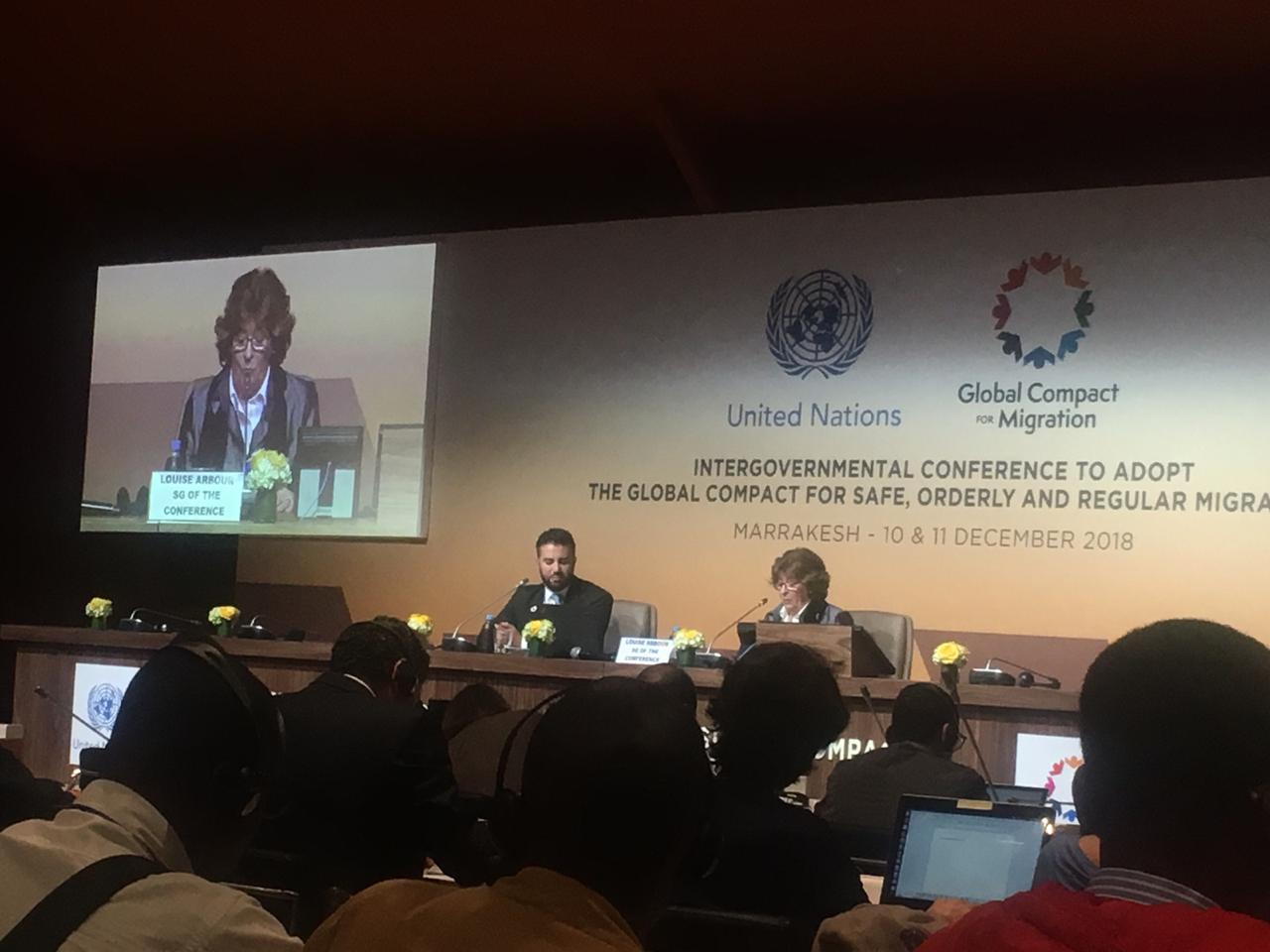
U.N. formally adopts controversial migration compact

U.N. members states made history Monday by agreeing on a common approach to international migration.
The U.N.’s controversial Global Compact for Safe, Orderly and Regular Migration was adopted during the opening session of a two-day intergovernmental conference that kicked off in Marrakech, Morocco. However, a number of countries, the United States among them, refused to sign the nonbinding accord.
During his opening remarks, United National Secretary General Antonio Guterres noted that the deal was a product of intense efforts.
“You are here because you recognize the importance of this compact to prevent suffering and chaos”, he said
According to Guterres, The Global Compact rests on two simple ideas :
First, migration has always been with us – but in a world where it is ever more inevitable and necessary, it should be well managed and safe, not irregular and dangerous.
Second, national policies are far more likely to succeed with international cooperation.
General Assembly President, Maria Fernanda Espinosa Garces, echoed Mr. Guterres’ sentiments and described today’s action as a roadmap that will act as a reference to public policies, as well as a response to the global phenomenon.
Since the text was finalized in July a number of member states have withdrawn their support in a move that has been termed as unfortunate with various falsehoods been propagated about the agreement.
“The Compact is not a treaty, it is not legally binding”, Secretary Guterres said. “It is a framework for international cooperation, rooted in an inter-governmental process of negotiation in good faith, that specifically reaffirms the principle of State sovereignty, including “the sovereign right of States to determine their national migration policy and their prerogative to govern migration within their jurisdiction, in conformity with international law.”
In addition to the U.S., Germany, Hungary, Australia, Israel, Poland, Slovakia, the Czech Republic, Austria, Switzerland, Bulgaria, Latvia and Italy have all either refused to sign the compact or expressed reservations about it.
Critics insist that new compact does not distinguish between economic migrants and refugees. They also say the plan will increase migration and make it harder for individual countries to refuse migrants.
The resolution is now set to be presented in the General Assembly in New York later this month for its final stamp of authority.






